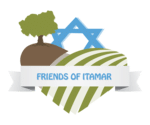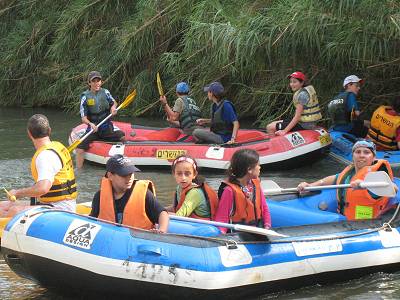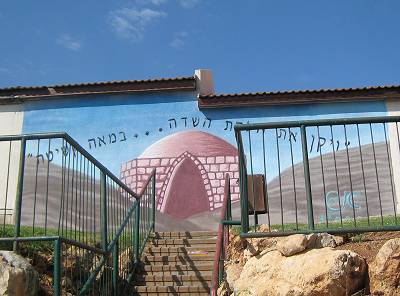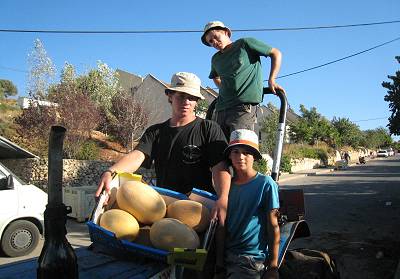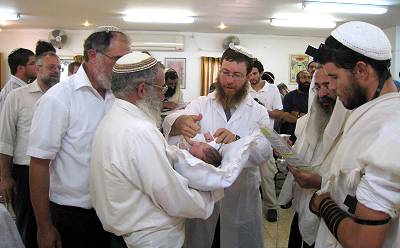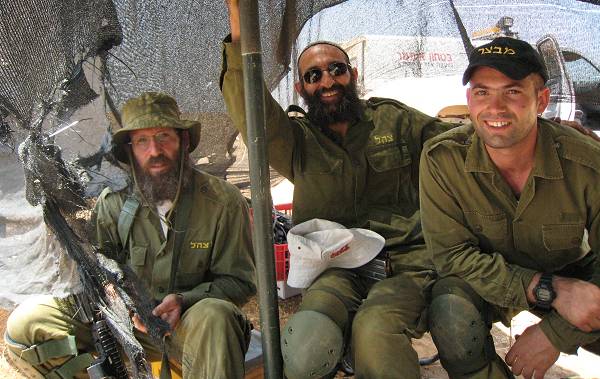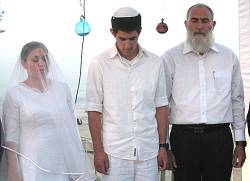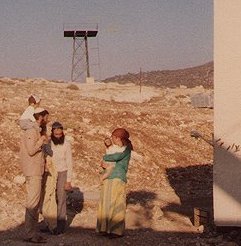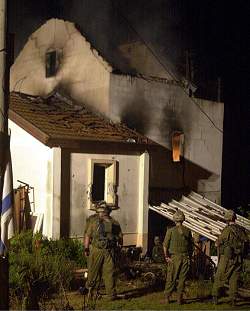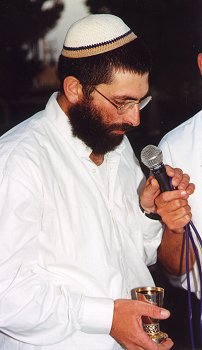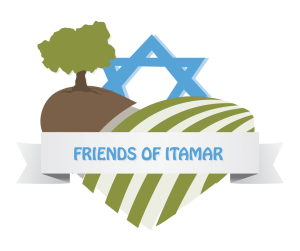Itamar News July 30th 2007
July 30th 2007 1. This week we poured the floor of our new synagogue! G-d willing we will able to pray in the building by next Rosh Hashana (New Year). 2. The Itamar youth planted
Itamar News July 27th 2007
July 27th 2007 1. Leah addresses a group of 70 people from Fort Meyers Florida that made a special trip to Itamar to express their solidarity with our community. 3. A big shipment
Itamar News July 20th 2007
July 20th 2007 1. This passed Sunday, Erev Rosh Chodesh Av, The Itamar ladies went on a special outing to a spa near Haifa. They had a great time and they want to thank the special
Itamar News July 13th 2007
July 13th 2007 / 27 Tamuz 5767 1) Unfortunately, Itamar had a terrible tragedy this week. One of our dear students of our Yeshiva high school, Evyatar Mahon that just graduated a f
Itamar News July 5th 2007
July 5th 2007 / Yud Tet Tamuz 5767 1)This week our campers had the privilege going out on an all day water park excursion to Kibbutz Chofetz Chaim – we want to thank all our
Itamar News Updates June 27th 2007
11 Tamuz 5767 /June 27th 2007
Itamar in its early days by Leah Goldsmith
Itamar 1985- 23/1/2005 Almost 20 years ago, Itamar, then Tel Chaim, consisted of 2 tiny blocks of pre-fab concrete matchbox houses, like parallel rows of white dots on a black domi
Matan Zagron z”l
Matan, dear son, loved by your family, and Yishuv Itamar Born – 4 Cheshvan \תשמ”א killed – 21 Cheshvan תשס”ג
Itamar High School Massacre and Shabo Family Massacre First-hand Account
Tammuz 5762 (June 2002) Dear Friends, My name is Moshe Goldsmith. I am a rabbi at the yeshiva high school at Itamar and a resident of the settlement of Itamar for the last 17 yea
Meir Lixenberg
Arutz 7 9 Elul 5671 Itamar Resident Murdered Itamar Resident Buried Meir Lixenberg, 36, father of five, was murdered yesterday afternoon by Arabs on his way home from work. As his
